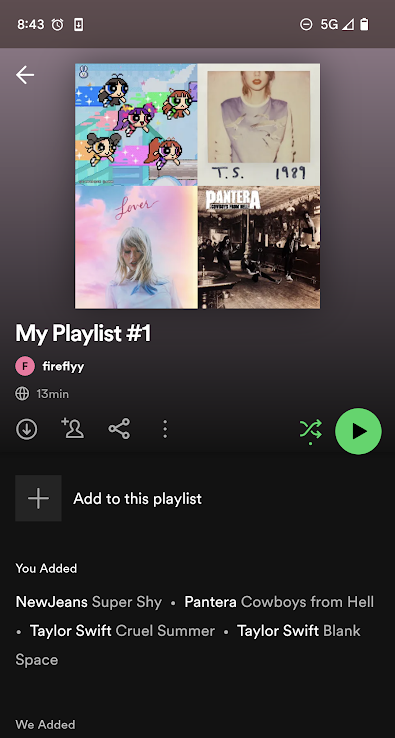Ever since I was little, people have teased me about my musical tastes: Are you listening to Beethoven again? Mozart? Bach? It all sounds the same, doesn’t it?
Of course, it doesn’t all sound the same! I argued there were many more composers than the big three, but that made everyone think I was even more of a classical music nerd. I listen to other genres, too, but everyone still knows me as the person who solely listens to classical music.
Now that I’m in my sophomore year, I decided to branch out a bit. I added random popular songs to my Spotify playlist. Among them were Taylor Swift songs, miscellaneous K-pop and heavy metal.
I started with Taylor Swift. I’ve heard her songs literally everywhere, but I never sat down to analyze her music. I braced myself for the worst.
Upon first listening to “Cruel Summer,” however, I began vibing to the beat. The music was comfortable and sunny, albeit repetitive. Still, I enjoyed the major chord progressions. Then, I noticed the lyrics and thus began my confusion. Is “the shape of your body” blue? Or is “the feeling I’ve got” blue instead? After googling the lyrics, I realized the latter was correct, but the wording wasn’t clear.
“Blank Space” followed in the same vein. This time, the lyrics were even more questionable, and I began asking myself: Is she intentionally making herself sound like a serial killer? I wasn’t far off: The song portrays a flirtatious woman and numerous romantic relationships ended by her crazy personality. I appreciated the storytelling, but the lyrics didn’t do the chords justice.
I listened to a few more songs and I enjoyed them. I don’t think I’m ever going to be a Swiftie, but I’ll admit, it was refreshing to listen to her songs. I’ll consider listening to instrumental versions more frequently from now on.
I then moved on to K-pop. Ever since I began middle school, my friends urged me to listen to groups like Blackpink and Twice. I was too stubborn to listen because I thought the idea of being a K-pop fan was “cringe,” especially seeing how overly obsessed fans act over idols that seemed too similar to distinguish. When I entered high school, I became neutral to K-pop and I never put much thought into it. My thought was that perhaps it’d be fun to get into it now.
NewJeans, a girls group formed in 2022, often pops up in trending Instagram audios, and netizens dub it as the most “gen-Z” K-pop group. At first, I liked their songs; the melodies were spirited and energetic.
Unfortunately, as I listened closer, I found all the sound effects, whether they were random noises in the background or whistling voices, to be annoying. The songs, like “Super Shy” and “Hype Boy,” all consisted of one phrase sung over and over in the same key and my initial excitement quickly waned. I’m not saying NewJeans is bad, but it’s not my vibe.
After consulting a knowledgeable friend for advice, I tried the boy band Seventeen. Considered as a “self-producing” idol group, Seventeen features sunny and upbeat songs. Most notably, “Darl+ing” and “Pretty U” immediately caught my attention. Even after listening to a few songs, I didn’t succumb to boredom. Even better — the songs sounded nice even when played without lyrics. Hooray! This group was the first that I enjoyed without qualms.
Finally, it was time to wrestle with my greatest fear: heavy metal. I found a random playlist with artists such as Pantera and King of Kings. As I listened, my ears were blasted with loud, dissonant beats.
Nope. Mission abort. I immediately clicked out and vowed to never listen to this genre again.
Attempting to listen to so many styles of music really opened my ears to new possibilities. Even though I still prefer classical over Taylor Swift and K-Pop, I have a newfound appreciation for different styles of music that I will probably listen to again — and one I’ll avoid at all costs.


























